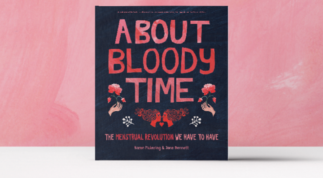Have you found positive ways to look after yourself whilst having time at home during COVID-19? This pandemic has dramatically changed the way we work and live, but it’s also impacted our relationship with our menstrual cycle.
Right now as some are easing back into “regular” work, it’s a great time to think about how you might continue this self care when entering back into the workplace.
Some conversation starters at your work may include:
- adjustments to your working hours at key cycle days;
- proposing to your organisation that it adopt a workplace Menstrual and Menopause Wellbeing Policy ; and
- asking your organisation to complete a menopause friendly checklist of their workplace policies.
Four years ago, we adopted a Menstrual and Menopause Wellbeing Policy, The result? Exactly what you’d expect; greater productivity and a happier work environment.
Experiences of menstruation and menopause can be very debilitating, yet we have been enculturated to mask their existence in the workplace, at schools and at home. This policy supports employees in their ability to adequately self-care during their period and menopause, while not being penalised by having to deplete their sick leave.
OurMenstrual and Menopause Wellbeing Policy provides the possibility of working from home; the opportunity to stay in the workplace under circumstances which encourage the comfort of the employee eg. resting in a quiet area; or the option of taking a day’s paid menstrual leave. The policy helped us feel more empathetic and supportive of each other in the workplace and our lived experiences of menstruation and menopause.
Here’s what our executive director had to say about the policy in 2020:
“In the 3 years that we’ve had the policy we’ve had 24 days of leave taken, the sky hasn’t fallen in. One of the important things is that the benefits across our office are immeasurable, our culture is more open, it’s supportive, for example, it’s not uncommon for peers to talk openly about which menstrual cup they prefer. We also have free products in our toilets. This leave provision has made our staff appreciative of who we are, that the organisation cares and that we are providing a constructive and supportive workplace environment. Our staff have felt more empowered, more in control, encouraged to self-care more than they would have. Nothing but positives…This is the standard which we think should be striving for in all of our workplaces…I think these conversations across sectors need to happen and that is all to the good.”
Today I introduced a “Menstrual and menopause leave policy” at work. Thank you @VicWomensTrust for providing a template.
When I became a CEO I promised myself I would do the things I wish other people had done before me in my male-dominated industry 💪
— Diripouf (she/her) (@Dirip0uf) January 4, 2021
Earlier this month, @Diripouf1 tweeted that as a CEO she has introduced a menstrual and menopause leave policy in her workplace. In January 2019, Studio Mayday, a leader in the New Zealand gaming industry adopted our policy and made their workplace handbook public to push change across their industry.
Salesforce has worked with one of our About Bloody Time Advisory Group members to implement menstrual education and a workplace policy in their Melbourne office. About Bloody Time: the Menstrual Revolution We Have to Have, is our self-published book making the case for menstrual revolution as an essential key to unlocking gender equality.
In September 2020, Victoria’s Health and Community Services Union (HACSU) launched their campaign to introduce Reproductive Health and Wellbeing Leave as one of their key claims in their current Mental Health Enterprise Agreement bargaining. At the campaign launch event, consultant to HACSU GENVIC CEO Tanja Kovac spoke about how the VWT’s menstrual policy laid the groundwork for HACSU’s claim, “Progress happens when we layer brave organisations, when one organisation stands up and does something brave, it lays the way for other organisations to do something brave too and we are indebted to the work of Mary and Jane and Karen’s book.”
Other organisations like The Cova Project have implemented the policy because, according to their CEO Geena Dunne, “it’s the right thing to do.”
We strongly encourage everyone to get the word out there and start having conversations within your own workplace about how you can introduce a policy. Karen Pickering, co-author of our book About Bloody Time has this advice on how to start these conversations in workplaces, “If you find the allies in your workplaces and in your space you can share courage with each other and feel validated and strong enough to have those discussions and questions then band together and fight for change.”
Download the policy template.



